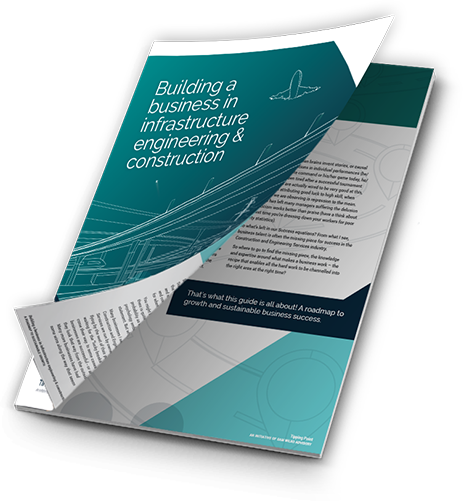My anecdotal evidence suggests that 90% of business partners in engineering and construction firms are experiencing strained relationships. While this is just my observation as a consequence of working with business owners to sort their issues out, the fact that this pattern keeps repeating itself tells me that for many firms this is a significant problem.
I’d say most of these businesses are used to getting their work done, whilst avoiding difficult conversations and sweeping contentious issues under the carpet! It’s a strategy that can work for a time, but at some stage the rooster will come home to roost.
I’m fairly big on this topic, not just because I’m a touchy, feel good, let’s all just be friends kind of bloke (because I’m not always!). The stresses and strains l see, and how they play out into the different personality types makes all the difference in how effectively you can lead your business, set the tone for “how we do things around here”, quickly react to market changes and proactively plan to take advantage of new opportunities.
Many successful businesses are built by people with very different skillsets and personality profiles – think for instance of the out of control entrepreneurial salesman (great ideas, but poor execution) working with a highly organized analytical partner (risk averse, keeping everything on the straight and narrow). Both are very different but with mutual understanding and respect can very effectively complement each other.
Every business struggles with this tension, however engineering and construction firms have a particular slant on this problem that makes them more vulnerable to failure. Partners in engineering and construction firms are often from a trades and engineering background. In some ways we all share a common set of traits which drew us to the construction game in the first place. Consequentially the differences between us can be more subtle. Here’s some examples of who I meet in engineering and construction firms I work with:
Controlling Colin
Colin has never made a mistake in his life and is not about to make one soon. Unfortunately, he’s not about to make his first decision either as he inevitably remains tied up in all the analysis that must be considered in making the call.
Get Rich Quick Rodney
Rodney has a feeling that success and the life of his dreams is just around the corner. Maybe he’ll buy a boat or a nice car or just sit on the beach with beer & skittles close at hand. In the meantime all this detailed stuff seems such a pain in the rear-end to deal with every day.
Ego Eric
Eric has all the answers – just ask him! Just don’t press him on why it’s the right answer because you’re unlikely to get much of a reply (if indeed you get a response at all!). Eric spends a lot of his time wondering why the right answers aren’t as obvious to everyone else as they are to him.
Colin, Rodney and Eric can all remember a time when they worked together like peas in a pod, but the passage of time has started to expose and amplify their differences. It’s manageable for the moment, but what happens if a major contract goes tits-up or one of your larger debtors blows up owing you a big bill or your best client leaves you?
Like all of us, business owners are never too old to learn more about the art and science of communication. We all know the way in which we most like to be written and spoken to, however many people are unaware that there are common and distinct styles that we tend towards when we communicate with each other. Improving the lines of communication starts with (a) knowledge of these typical styles (b) awareness of our personal preferred style and (c) awareness of the other styles in the room in a given situation.
Business partners with access to these simple and effective tools that maintain the lines of communication and support the tough conversations that need to be had, are partners that survive and thrive in testing times.
Is your business relationship strong enough to work through a major challenge, or will your partnership evaporate along with the business in a sea of “he said, she saids”?
